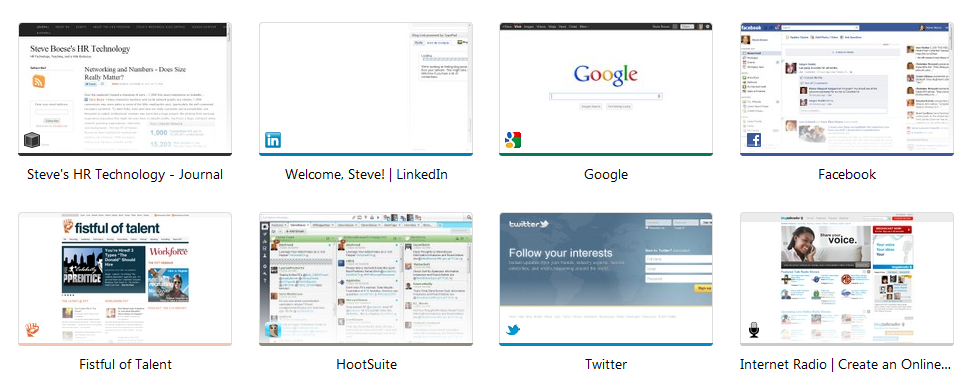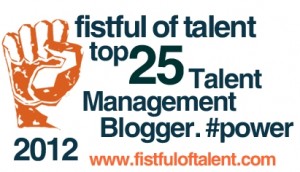Tebow: How many leaders are too many?
There are two reasons I had to finally weigh in on the (admittedly over-analyzed), Peyton Manning - Tim Tebow NFL saga that has played out over the last two weeks. One, I need to make sure I have submitted enough sports-related dispatches for next year's installment of The 8 Man Rotation E-book, and two, since Tebow has been traded to my beloved New York Jets, I simply felt obligated to comment. So, apologies in advance if you are already tired of the story - come back tomorrow for something more interesting. Don't look behind you Mark.
Don't look behind you Mark.
Most of the HR-related analysis on the deal has tended to focus on what the Broncos' decisions suggest about Talent Management - that acquiring superior talent is more important that keeping popular but less-talented around, and that a keen understanding of what capabilities and competencies are required for success should drive talent decisions. Those are both good points, but as a Jets fan, I want to focus on their decision to bring in Tebow and what it might say about their (shakier) talent strategy and the potential implications to the success of the team.
In professional football it is generally agreed that the quarterback position is the most important on the field, and the quarterback is seen as the team leader. For young quarterbacks, developing leadership skills and earning the respect of teammates might be equally as important as improving the practical skills of the game. For the New York Jets current starting quarterback and three-year veteran Mark Sanchez, cementing his status as the team leader has been a kind of rocky ride. His first two seasons saw kind of unexpected success, with back-to-back deep playoff runs, but this success was tempered by a disappointing 2011 season marked by a failure to make the NFL playoffs and numerous reports of dissension amongst the team. Sanchez play on the field was inconsistent, (not uncommon for young quarterbacks), and the presence of strong personalities on the coaching staff and in the locker room have also made it hard for Sanchez to truly become the team leader, generally seen as a necessary step on the march towards competing for championships.
But the Jets' ownership has enough faith in Sanchez' ability and potential, to just a few weeks ago reward him with a contract extension, and a guarantee of at least two more years as the starting quarterback. At the time the contract was seen as a commitment by the team to Sanchez not only as the quarterback, but also as the de facto team leader. It was a bit of a risk certainly, as any contract is, but it was also a signal to the players and fans that the ownership and coaching staff was 100% behind the player who is effectively the most important player on the team.
Fast forward just a short time and via a series of events that started with the Indianapolis Colts decision to release NFL legend Manning, and now the phenomenon known as Tebowmania has relocated to the New York Jets. Tim Tebow enjoyed an incredible, unusual run of games last year for the Broncos that seemed equal parts incredibly poor play, inspired and winning comeback performances, and solid character and leadership capability, unusual for such a young player in the NFL. In fact, when talking about Tebow, observers almost always talk 'character' and 'leadership' as much as they discuss the practical aspects of actually playing quarterback in the NFL.
Before the Sanchez contract extension, there were serious questions around the team's faith in him and their commitment to his continued development. Then, with the acquisition of Tebow, these same questions are naturally re-emerging. The larger questions I think, are about what it signals about leadership in the organization and the importance of commitment to key team members and an understanding about the role of leadership inside the organization. Tebow, for all the circus atmosphere that surrounds him, is seen as a high-character guy and a natural leader. Sanchez, as the incumbent quarterback, has not yet firmly grasped the role of team leader, and now with the acquisition of Tebow, his job has become that much harder. The minute things start to go poorly on the field, fans and the media will start calling for Tebow to assume Sanchez' spot. And if Tebow does come into the game, and performs well, (not a given, but possible), and then says and does all the right things afterward, (almost certain), then Sanchez' position becomes more untenable.
The Broncos have been lauded for doing all the right things in this situation. Signing Manning was the first right move, then moving out Tebow was the next correct move. To Manning and to the team, the signal was clear - Peyton's our guy. And with him on board, the presence of Tebow was only going to be a distraction. Their management recognized and abided by that old football axiom, 'If you have more than one starting quarterback, you don't have any.'
Mark Sanchez is certainly no Peyton Manning, does not have Manning's track record and does not get afforded the same respect. But just two weeks ago, Jets management had committed to Sanchez (and guaranteed him at least $20M). The contract said essentially, 'Mark is our quarterback and leader. We think we can win with him.'
But with the signing of Tebow, who as a winning-type player naturally will want to compete with Sanchez for playing time as well as team leadership, the Jets have essentially told Sanchez that only two weeks later they are hedging their $20M bet.
Only one guy can play quarterback at a time. And only one guy can be the team leader. What's tough on the organization is when ownership can't figure out who that guy should be.

 Steve
Steve


